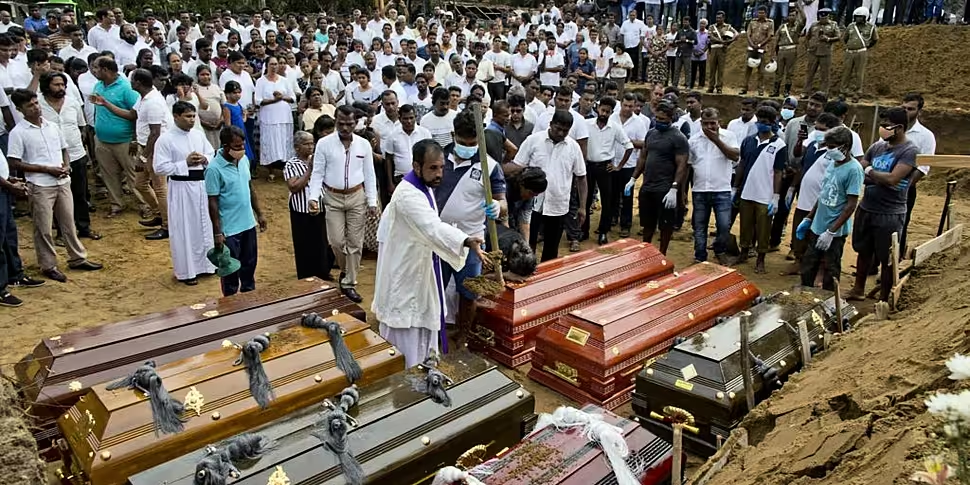The death toll from the Easter Sunday terror attacks in Sri Lanka has been reduced by more than 100.
The country’s health ministry said it now believes “about 253” people died in Sunday’s blasts.
The ministry said the change was the result of a calculation error.
Nine suicide bombers are believed to have carried out the attacks on churches and hotels in the Colombo area and the eastern city of Batticalo.
Intelligence failure
This afternoon, the country’s Defence Secretary Hemasiri Fernando resigned his position after it emerged that officials were warned of the potential for attacks in the weeks leading up to Easter.
Officials also failed to act after Indian intelligence warned them again just hours before the first bomb went off.
Sri Lankan Prime Minister Ranil Wickremesinghe has also admitted that the suspects had returned from Syria before the attacks.
Authorities have blamed a local extremist group for the attacks but warned that they must have had outside help.
The Islamic State group claimed it was responsible but provided no evidence it was involved.
See our latest travel advice for Sri Lanka below.https://t.co/mRaQZ4tKqH pic.twitter.com/4CfkPNpkDa
— DFATravelWise (@dfatravelwise) April 25, 2019
This afternoon, the Department of Foreign Affairs advised Irish citizens against all non-essential travel to Sri Lanka.
It urged all citizens who are already in the country to “exercise a high degree of caution, to follow the instructions and advice of local authorities, to avoid large crowds and public spaces, and to stay indoors where possible.”
It said citizens should “cooperate with the local security forces and closely monitor local news for updates on the security situation.”
The UK Government issued a similar warning.
A State of Emergency is in place in Sri Lanka and a curfew is in place from 10pm to 4am across the island.









